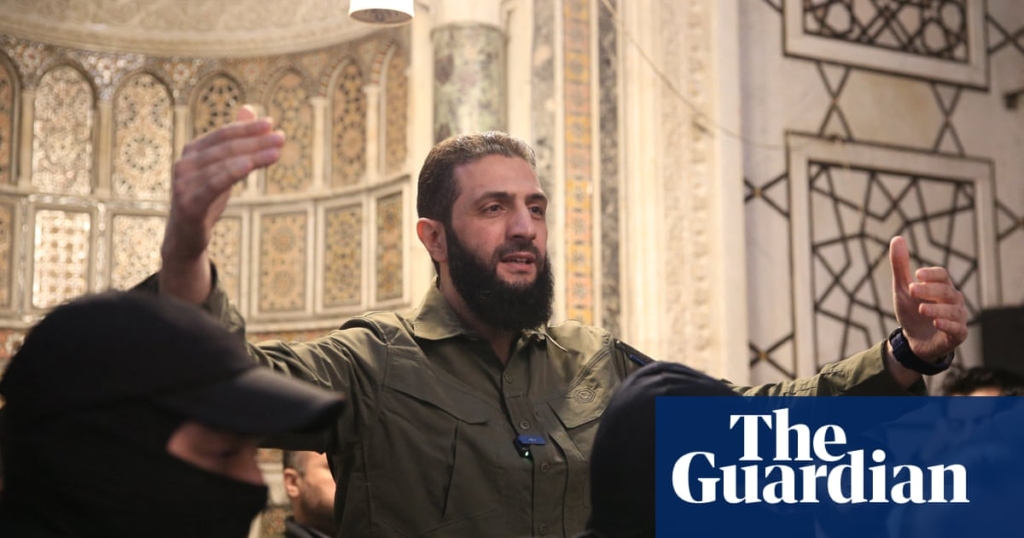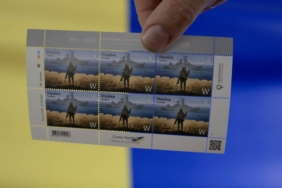Bu içerikte, 42 yaşındaki bir adamın Suriye’deki Umayyad Camii’ne girerek yaptığı konuşmaya odaklanılmaktadır. Bu adamın Ahmed Al-Sharaa olduğu ve uzun yıllar boyunca farklı bir kimlikle, Abu Mohammed al-Jolani olarak bilindiği belirtilmektedir. Al-Sharaa’nın Jolani adını bırakarak camiye girmesi ve Suriye’nin geleceği hakkında yaptığı konuşma, radikalizmden daha ılımlı bir yöne doğru bir değişimin işareti olarak yorumlanmaktadır. Ancak, bazı uzmanlar bu değişikliği sadece bir taktik olarak görebileceklerini ve gerçek niyetin uzun vadede radikal bir ideolojiyi gizlemek olabileceğini belirtmektedir. Al-Sharaa’nın Suriye’nin refahı için çalıştığı ve ulusal çıkarlara odaklandığı ifade edilirken, HTS’nin Idlib’deki yönetiminde bazı sıkıntılar yaşandığı ve bu durumun gelecekte de devam edebileceği vurgulanmaktadır. Sonuç olarak, Al-Sharaa’nın veya Jolani’nin sözleri yerine eylemlerine bakılması gerektiğine dikkat çekilmektedir.
[ad 1]
Kaynak: www.theguardian.com
On Sunday morning, a bearded 42-year-old man wearing a plain green military uniform walked into the Umayyad mosque in Damascus and addressed a small crowd, the Syrian nation, the region and the world.
With the mosque’s glittering decorations providing a backdrop, Ahmed al-Sharaa described the fall of the house of Assad as “a victory for the Islamic nation” and called for reflection and prayer.
“I left this land over 20 years ago, and my heart longed for this moment,” he said. “Sit quietly my brothers and remember God almighty.”
For most of the last two decades, the de facto ruler of much of Syria has not used his real name at all. Ahmed al-Sharaa, who grew up in a progressive household in a prosperous neighbourhood of Damascus and studied medicine, entirely disappeared. In his place was Abu Mohammed al-Jolani, a nom de guerre formulated according to the convention of jihadi militants seeking new identities redolent of historic Muslim glory and offering the shield of anonymity.
So it was Jolani who fought US soldiers in Iraq alongside jihadi insurgents between 2003 and 2006, and was then incarcerated there for five years in detention camps. It was Jolani too who returned to Syria in 2011 to play important roles in the campaigns of both the Islamic State (IS) and then al-Qaida.
It was Jolani who took over the Islamist group Hayat Tahrir al-Sham (HTS) and from 2017 imposed his rule on 2 million people in the north-western Syrian enclave of Idlib. Last month, it was Jolani who launched a rebel coalition dominated by HTS on its blistering 12-day campaign that ended in Damascus on Sunday.
The question now is which man will rule Syria: Jolani, who is designated as a terrorist by the US, UK and others and has a $10m price on his head, or Sharaa, who has gone out of his way over recent years to signal that his organisation will not attack the west?
There is little consensus on the answer. Many analysts say Sharaa’s decision on entering Damascus to drop his nom de guerre is just one indicator among many that suggests the transition from jihadi extremism to something more moderate is genuine.
In Aleppo, the first city to be captured by the rebel alliance when it launched its offensive last month, HTS offered amnesties to former regime foot soldiers, went door to door to reassure Christian residents they would not be harmed, and sent a message to Kurds saying “diversity is a strength of which we are proud”. Sharaa himself is reported to have led diplomatic efforts to win over Ismaili Shia leaders and so secure key towns for the rebels without loss.
“From what we can see, he is a genuinely changed person. He has been on a journey and in Idlib he developed a pragmatic theology,” said Shiraz Maher, an expert in extremist Islam at King’s College London.
Nor is this a sudden shift. Sharaa, even in his former avatar, had turned against both al-Qaida and IS, fighting their militants and savagely purging his own group of anyone suspected of dual loyalties. Though he recently said he did not regret celebrating al-Qaida’s 2001 attack on the US, few doubt that Syria’s new leader has genuinely rejected the hardliners’ vision of a global campaign, limited neither in time nor space, against western powers or other members of the so-called Crusade-Zionist alliance.
Some experts point out that the use of Jolani as a nom de guerre did not merely indicate the HTS leader, or at least his family, was from the Golan heights, but also implied a strong personal commitment to end Israel’s occupation of the area. Dropping it sends a message, they say.
It appears equally clear that Sharaa’s focus is local and his interest nationalist: the greater welfare of Syria and its battered, traumatised, suffering people.
Quite how this welfare is best achieved is where Sharaa might well begin to diverge from his carefully curated image as a reformed man. Wearing a plain uniform does not just signify a change from the standard garb of a militant Islamist fighter, it is a rejection of the robes, gold braid and medals that are so often marks of rank in the region. But, even if popular protests have occasionally forced concessions, many dissidents have been treated harshly under HTS rule in Idlib.
“The challenges are going to be massive, and he does have an authoritarian streak … Is he creating a secular state? I don’t think so. My guess is that it is going to be Taliban-lite in terms of what he is going to implement,” said Maher.
Other analysts believe that some senior leaders of HTS and the group’s most effective fighters, who include central Asian veteran extremists, remain committed to a “jihadi core ideology”. Some commentators believe that any newly minted moderation is a merely a “makeover” disguising radical ambitions, both local and global, over the long term, and they caution that neither the west nor regional powers should drop their guard.
Hussain Abdul-Hussain, an expert at the Washington-based Foundation for the Defence of Democracy, pointed to what he identified as a “jihadist flag” next to the flag of the Syrian revolution behind Sharaa during an interview last week with CNN.
“So far he has been saying all the right things … and I’m seriously hoping he is the guy he says he is,” Abdul-Hussain said.
“But the country is a shambles. There is no economy, no money. There is crime, poverty, millions of refugees who want to come back. Now everyone is happy, but sooner or later, things are going to get real and my fear is that he turns back to his Islam.”
Sharaa – or Jolani – has an answer to sceptics and supporters alike. “Don’t judge by words, but by actions,” he told CNN.







Yorumlar kapalı.